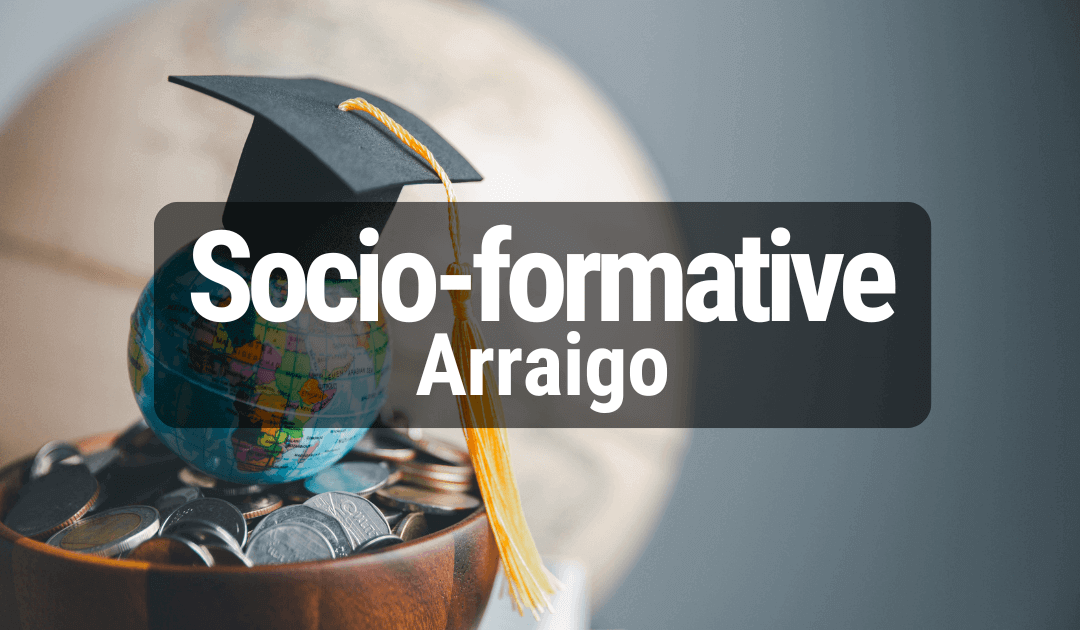Major changes are coming to the current arraigo for studies, which is changing its name to the socio-formative arraigo (arraigo socioformativo in Spanish).
But its name is not the only thing that’s changing. New requirements, new advantages (and disadvantages), and additional features are about to make this option a much more interesting alternative.
Don’t miss it! Everything you need to know in his article.
What is the socio-formative arraigo?
Socio-formative arraigo is the new name given to the current arraigo for studies under the 2024 Immigration Regulations Reform.
Although the basis and basic premises of this permit remain the same, this arraigo has evolved and presents certain novelties.
We are referring to a residency permit for exceptional circumstances that allows individuals to undertake specific courses and training, which will later allow them to obtain a work permit by applying the skills they have acquired.
For whom would it be an ideal option?
Well, because it requires the same time in an irregular situation as the new laborsocial arraigo, it will be the ideal option for those foreigners who have NOT found a job offer.
Thus, thanks to starting training, they will be able to regularize their situation, improve their professional profile and obtain more time (as well as greater opportunities) to finally move on to the long-awaited work permit.
Socio-formative arraigo requirements
Below we’ll go through this arraigo’s requirements. This is the preliminary list contained in the draft, meaning it will still be expanded and further detailed in the near future.
The requirements currently presented in said draft are the following:
- You must be in an irregular situation in Spain
- You must have been in Spain for at least 2 continuous years prior to the application
- You must be enrolled or taking a training course, or, if not, prove the commitment to enroll in one. Like with the arraigo for studies, NOT all courses are valid. In the next section, we’ll expound on this, and explain which courses are valid, and which are not
- Important: it will be necessary to obtain a social integration report prior to the application
- Demonstrate not having criminal records
- Payment of the corresponding fee
Which courses will be valid?
A fundamental aspect of this procedure is understanding which courses will be considered valid.
Here, we encounter some differences and new developments.
Firstly, the accepted courses will be post-secondary education studies taught by an authorized educational institution in Spain.
Before we define exactly what we mean by post-secondary education, it is important to emphasize that these courses must lead to the attainment of a recognized qualification.
In this link you can find the authorized teaching centers in Spain.
You must ensure that yours is on that list.
Can they be online courses? The answer is that the courses can be 50% online. Or, in other words, hybrid classes.
In addition, level 1 vocational training will also be allowed now – not just, level 2 and 3.
University studies are NOT included in the options. This is because these offer a higher level of qualification, and there are other authorization options for this purpose.
Arraigo for studies vs. socio-formative arraigo. What’s the difference?
Let’s look at the main differences between the socio-formative arraigo and the current arraigo for studies:
Request this root when you are already enrolled or having started the course
Firstly, the socio-formative arraigo can be applied for when one is already enrolled or has already started the course.
The arraigo for studies, on the other hand, did not allow one to have started the course before applying for the permit.
Without a doubt, this is something that offers greater comfort and adaptability to foreigners in an irregular situation.
Possibility of working up to 20 hours a week
Secondly, with the socio-formative arraigo, one will be able to work while taking the training course. This is something that will surely be well received by many.
This means that this arraigo gives one the authorization to work.
One can work up to 20 hours a week, as long as the job pays at least the minimum inter-professional wage (SMI).
More options to renew and extend an additional year
Another significant innovation pertains to the renewal process.
Currently, the training-based residency can only be renewed for a second year if the course lasts that long or if the student has not passed.
However, with the new socio-formative residency, renewal will be possible not only under those conditions but also if the individual has employment or is actively seeking work.
Introduction of the social report as a new requirement
Unfortunately, it is not all good news.
A (big) disadvantage of the socio-formative arraigo is that it will be required to obtain a social integration report (like how it is with the social arraigo).
This addition will not only slow down the process in many cases, but could also complicate it considerably in certain situations.
It should be noted that, for example, in certain Autonomous Communities such as Catalonia, obtaining this report is subject to demonstrating a minimum level of Catalan.
When will it come into force?
This new type of arraigo was published and available from the 20th of May 2025.
If you have any questions, our lawyers are always at your complete disposal. Schedule a consultation with us and receive personalized legal advice:
[/et_pb_text][/et_pb_column][/et_pb_row][/et_pb_section]

At Balcells Group we have been foreigners effortlessly moving to Spain for over 11 years. We help expats from all around the world with their immigration, business, tax and legal needs; ensuring a legally safe and enjoyable transition to the Spanish territory. Our multilingual team understands the importance of adapting to the cultural and legal specificities of our international clients. We offer a comprehensive service that combines the expertise of several generations of lawyers with the innovation needed to address today’s legal challenges, always striving to simplify processes and ensure reliable, effective results.



